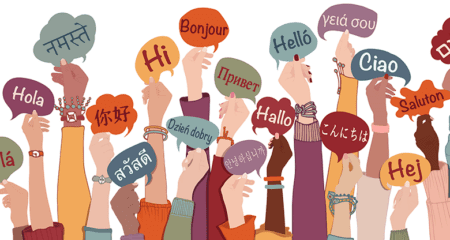WhatsApp is the primary messaging app for more than 2 billion people worldwide. Here’s why, as a marketing and customer experience (CX) professional, you need to follow the trend and integrate it into your communications strategy.
WhatsApp is more convenient than SMS
WhatsApp allows you to interact with customers via text, video, documents and audio. 56% of people would rather message customer service than speak on the phone.
With WhatsApp, they can send text- or audio-based messages based on their personal preferences. If the query starts as a message and then needs to escalate to a call, it’s easy to make that transition from a single app. This helps boost satisfaction and expedite resolution times.
Over the past few years, it revolutionised communication in a Latin America, which is plagued by high SMS costs – to the extent that some 96% of Brazilians use WhatsApp as their primary method of communication.
Importantly, WhatsApp is device agnostic (unlike other apps that are specific to iOS or Android). You can streamline communication that had been conducted across different channels, thereby making operations and management more efficient. The result: a more scalable, cost-effective approach – with better results.
Higher security is a key benefit
WhatsApp offers end-to-end encryption and verified business profiles. It’s therefore ideal for instilling trust in your customers, as it provides peace of mind that personal details remain secure. Particularly for requirements such as fraud checks, it gives the perfect combination of convenience and protection.
Interactive content capabilities boost engagement
A key WhatsApp feature is its rich media sharing capability – it supports high-resolution images, videos and audio, which help drive marketing campaign engagement. Plus, it enables your customers to trigger location sharing, so that you can geographically tailor responses with clickable notification alerts.
It also boosts your follow-up communications. Travel providers can use it to send train tickets or boarding passes. Energy and utility companies can share documents (for example, statements or smart meter offers) and links to online portals for submitting meter readings. And financial service companies can conveniently carry out two-factor authentication.
Conversational, personalised messaging increases satisfaction levels
It’s easy to integrate AI-driven, NLP-powered chatbots on WhatsApp.
With the cross-channel chatbot capabilities on the Engage Hub platform, customers receive human-like replies that free up call centre agents to focus on more complex queries. Whether customers are looking for delivery updates, opening hours, service updates or technical support, you can provide an effective and automated self-service option.
The chatbot also pulls in data from across channels, so it has access to relevant customer history information. From purchasing and logistics to customer service, you can therefore deliver a better customer journey.
Advanced analytics drive a higher return on investment
You get more granular analytics compared with SMS. For example, read receipts (which you get with WhatsApp) are more useful than delivery notifications (which you get with SMS).
There’s also a significant, additional benefit you get when you use the Engage Hub platform to manage WhatsApp – all customer journey information is centralised within a single analytics hub. This allows you to interrogate how people use WhatsApp during their purchase and post-purchase experience, so you can easily identify blockages and tailor your CX.
Demo WhatsApp for Business with the Engage Hub Early Access Programme
You can see exactly how it will benefit your marketing and CX – so you can build stronger relationships with customers.



